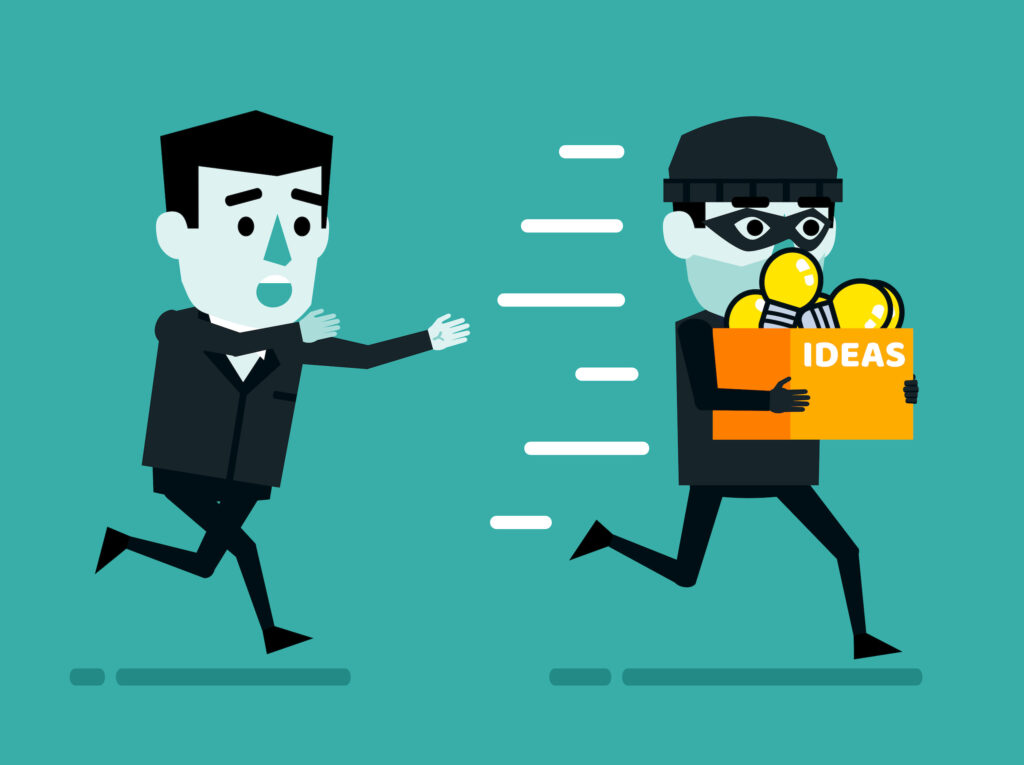I’ve copyrighted an image of an NFT, registered a trademark of a new business, and now proceeding with utility and design patent applications for a new product. Do I think this was all necessary? Not really. The only item absolutely necessary was the trademark registration so I can create a branded listing on Amazon. From a micro-entity business perspective, it’s probably wiser to focus my capital toward marketing, scaling, and selling a product. Once a product is market-tested and bringing in revenue, that’s when my boot-strapped business can start looking at ways to increase profit and limit competition. This is an art that I’m learning to balance.
There is a perception that patents are supposed to protect a product. This is not true. Patents give you a legal sword to attack and pursue people violating the patent. This is only worthwhile if violators made an obscene amount of money with my idea. One example is a patent case where the California Institute of Technology (Caltech) won over a trillion dollars from Apple and Broadcom for patent violations in chips inside all of Apple’s products. That’s a lot of cheddar. My idea isn’t an iPhone and it probably never will be. My financial goal for the current project is simply fifty thousand dollars in profit over the course of a few years. That works out to be about $1400 a month. As a thief looking to make a quick buck, is trying to take half of that worth the time and effort? My decision for proceeding with patent applications has nothing to do with suing people. I can’t possibly afford the attorney fees. So why am I doing it? You may think the “patent pending” status will deter people from attempting to sell something similar but the street lesson is that people will sell anything as quickly as they can before something shuts them down. The goal is to increase the friction associated with stealing an idea. People are lazy and alway look for easy money. This is the law of least resistance. By adding a couple of legal hoops, I can deter probably 80% of the people capable of knocking it off. For me, a patent is a concrete, indisputable document that you can show any organization and they are obligated to take down any perceived violations of the patent. I am attempting to monopolize my market. Since my marketplace is Amazon, they have the resources and technology capable of instantly shutting down any competition before it has the chance to get off the ground. With Amazon’s star-review system, that marker is usually about 50x four-plus-star reviews before you’ve gained the consumer trust. The other advantage is being able to write cease and desist letters to every website with content relating to your product if it’s bad for business. Remember that patents are a tool. How and why you use the tool is more important than simply having it.
All in all, all variations of intellectual property law all come down to the same premise. It gives people a tool to sue for money if the idea is a moon shot. I copyrighted my NFT in hopes that one day it’ll go viral and someone tries to make a million selling t-shirts or something. Then I can come in and sue them for that million dollars. That’s worth my time and effort, but making t-shirts is not. By obtaining intellectual property rights you kind of want your stuff to get stolen and have someone become wildly successful with it. It’s like planting seeds that hopefully flourishes into a great money tree. Most times this is where deal making comes in and you can negotiate a settlement outside of the courts. At the end of the day, I have to decide what’s worth patenting, copyrighting, or trademarking. Being able to tell which one is a skill developed with experience and money.
